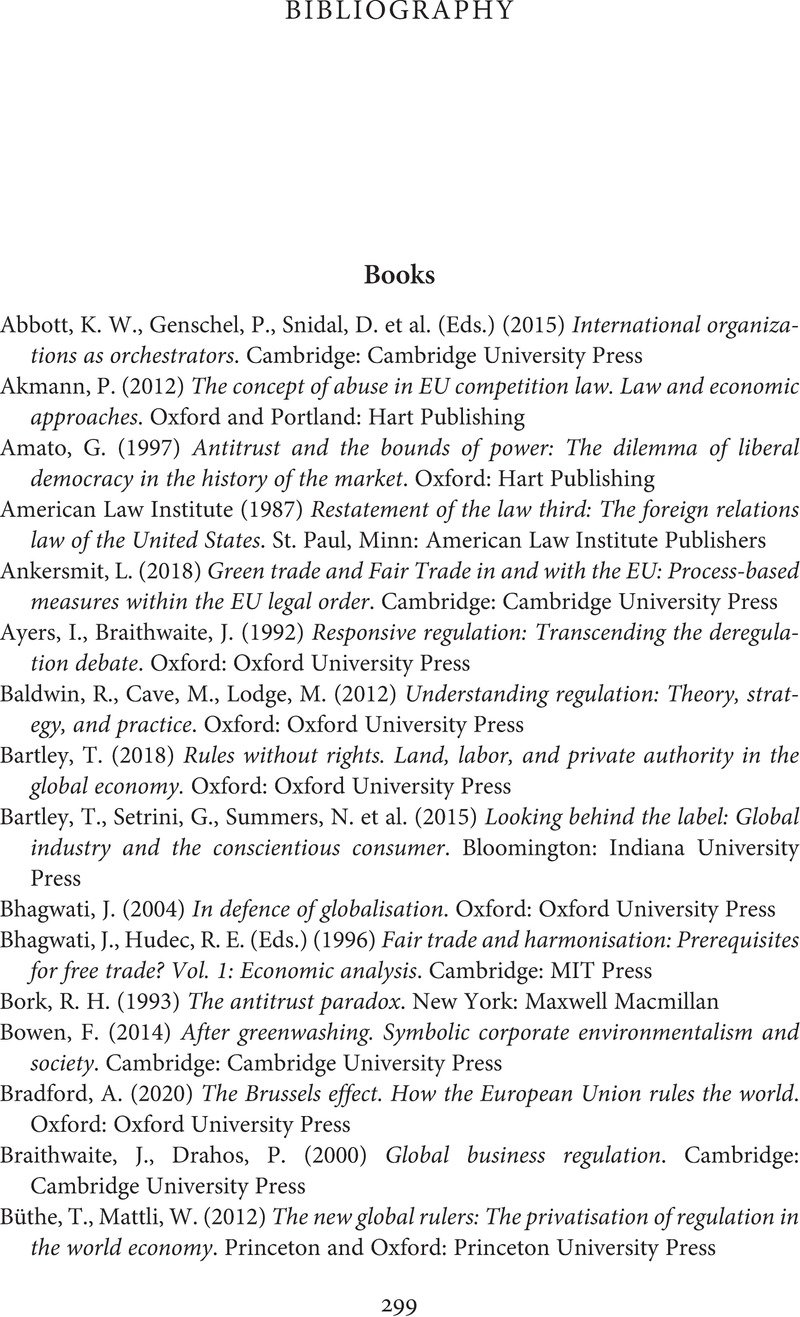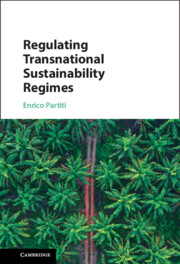Book contents
- Regulating Transnational Sustainability Regimes
- Regulating Transnational Sustainability Regimes
- Copyright page
- Contents
- Acknowledgements
- Abbreviations
- Introduction
- 1 Features, Typologies and Effects of Voluntary Sustainability Standards
- 2 Public Authority and Voluntary Sustainability Standards
- 3 Voluntary Sustainability Standards Under EU Competition Law
- 4 Voluntary Sustainability Standards and EU Market Regulation
- 5 Attribution and Expected Conduct of WTO Members Towards Voluntary Sustainability Standards
- 6 Transposing Technical Barriers to Trade Agreement Meta-rules to Voluntary Sustainability Standards
- Conclusion
- Bibliography
- Index
- References
Bibliography
Published online by Cambridge University Press: 12 May 2022
- Regulating Transnational Sustainability Regimes
- Regulating Transnational Sustainability Regimes
- Copyright page
- Contents
- Acknowledgements
- Abbreviations
- Introduction
- 1 Features, Typologies and Effects of Voluntary Sustainability Standards
- 2 Public Authority and Voluntary Sustainability Standards
- 3 Voluntary Sustainability Standards Under EU Competition Law
- 4 Voluntary Sustainability Standards and EU Market Regulation
- 5 Attribution and Expected Conduct of WTO Members Towards Voluntary Sustainability Standards
- 6 Transposing Technical Barriers to Trade Agreement Meta-rules to Voluntary Sustainability Standards
- Conclusion
- Bibliography
- Index
- References
Summary

- Type
- Chapter
- Information
- Regulating Transnational Sustainability Regimes , pp. 299 - 353Publisher: Cambridge University PressPrint publication year: 2022

